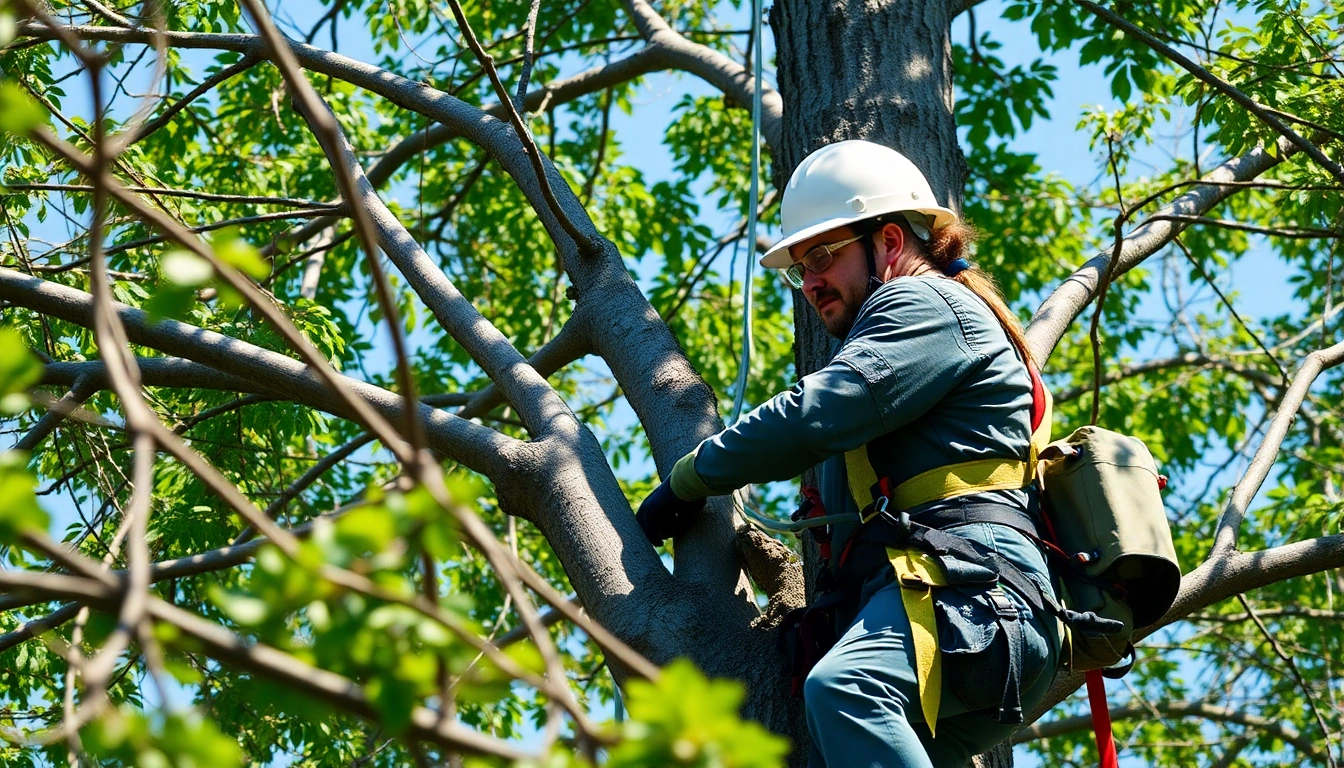Understanding Cold Calling in Wholesale Real Estate
Cold calling in the context of wholesale real estate is an essential technique for finding motivated sellers and securing profitable deals. It is often the first point of contact between wholesalers and property owners who may be unaware of the options available to them. By reaching out directly, wholesalers can uncover opportunities that traditional marketing channels might miss. To effectively navigate this process, it is crucial to understand the elements that contribute to successful wholesale real estate cold callers.
What is Wholesale Real Estate Cold Calling?
Wholesale real estate cold calling involves contacting property owners directly to solicit their interest in selling their properties, typically below market value. This approach is indispensable for wholesalers who act as intermediaries between property sellers and buyers, often facilitating deals without ever taking ownership. To succeed in cold calling, wholesaling professionals must be well-prepared, equipped with a solid script, and ready to manage objections from potential sellers.
Importance of Cold Calling for Wholesalers
Cold calling serves several critical purposes in the realm of wholesale real estate:
- Lead Generation: Cold calling is one of the most effective methods to identify motivated sellers who may be looking for a quick sale.
- Market Insights: Direct interactions provide valuable feedback about the local real estate market, helping wholesalers better understand property values and seller motivations.
- Building Relationships: Establishing a rapport during calls can convert cold leads into warm prospects, increasing chances of closing deals.
Common Challenges in Cold Calling
While cold calling can be highly beneficial, it also presents several challenges:
- Rejection: Many calls will end in rejection, which can be demotivating if not managed properly.
- Compliance: Wholesalers must ensure they abide by local and federal regulations regarding unsolicited calls to avoid hefty fines.
- Resistance: Sellers may be resistant to offers they perceive as too low, requiring skillful negotiation and persuasion techniques.
Effective Cold Calling Strategies
Crafting an Engaging Cold Calling Script
A well-structured cold calling script is fundamental to engaging potential sellers effectively. Here are essential components to include:
- Introductions: Start with a friendly introduction, stating your name and your purpose succinctly.
- Property Inquiry: Inquire about their property directly, showing genuine interest in their situation.
- Value Proposition: Clearly articulate what you can offer, why it’s beneficial to them, and how your service allows for a stress-free sales process.
Importantly, the script should leave room for flexibility. Practicing active listening and adapting your approach based on the conversation will yield better results.
Timing Your Calls for Maximum Impact
The timing of your calls can significantly influence your success rates. According to industry data, the best times to reach out are:
- Late afternoons: Many people are more receptive after work hours, especially on weekdays.
- Wednesdays and Thursdays: These mid-week days tend to have higher response rates, as people are less preoccupied than at the start or end of the week.
Experimenting with different times can help identify the most productive windows for your specific market.
Leveraging Technology in Cold Calling
Modern technology can enhance your cold calling strategy. Tools and software such as CRM systems, auto-dialers, and call analytics can streamline processes and increase efficiency. Consider the following:
- Automated Dialing: Tools that automate dialing can save time and allow callers to focus on conversations rather than manual dialing.
- CRM Integration: Using CRMs enables you to track interactions, manage follow-ups, and segment your lists for targeted campaigns.
- Call Tracking: Recording calls (with permission) can help analyze performance, identify improvement areas, and refine your approach.
Overcoming Objections and Building Rapport
Common Objections Faced by Cold Callers
During cold calls, objections from potential sellers are common. Recognizing and preparing for these objections can greatly enhance your success rate:
- “I’m not interested.” – Prepare a gentle rebuttal that redirects the conversation towards their future needs.
- “Your offer is too low.” – Be ready to explain the rationale behind your offer with data and examples.
- “I need to think about it.” – Offer to follow up and provide additional information to help with their decision.
Techniques for Building Trust
Building trust is crucial in cold calling. Here are some effective techniques:
- Active Listening: Demonstrate genuine interest by listening more than you speak; this shows respect for their concerns.
- Empathy: Recognize their feelings and frustrations, and empathize with their situation.
- Consistency: Following up rigorously and keeping promises ensures your credibility in the eyes of the prospect.
Establishing Long-Term Relationships with Sellers
Not every call will lead to an immediate sale, but fostering lasting relationships can be beneficial down the line:
- Regular Check-Ins: After initial contact, perform periodic check-ins to keep the lines of communication open.
- Value-Added Information: Share local market insights or home selling tips without being salesy to demonstrate expertise and generosity.
- Networking: Create a network of contacts, from past clients to local service providers, who might recommend you to others.
Measuring Success in Cold Calling
Key Performance Indicators for Cold Callers
Defining your success metrics will help you optimize your cold calling efforts. Common KPIs include:
- Response Rate: The percentage of calls that generate a conversation.
- Conversion Rate: The ratio of calls that result in an appointment versus those made.
- Follow-Up Rate: The number of follow-up calls scheduled as a result of initial contact.
Analyzing Call Data for Improvements
Regular analysis of call data can reveal trends and patterns, guiding adjustments in your strategy. Consider implementing:
- Call Review Sessions: Analyze recordings and transcripts to pinpoint areas for improvement.
- Feedback Surveys: After appointments, send follow-up surveys to gather feedback on your approach.
- Performance Comparisons: Compare individual performance to identify who thrives in cold calling and what methods work best.
Real-Life Case Studies of Successful Callers
Examining the success stories of experienced cold callers can provide valuable insights. For instance, one wholesaler recorded a 30% increase in qualified leads by implementing systematic follow-ups after initial calls. Another case involved using data analytics to identify optimal calling times, resulting in a 50% increase in conversion rates. These examples illustrate that success in cold calling can often be achieved through diligence, analysis, and continual adaptation of strategies.
Expanding Your Cold Calling Team
Hiring and Training Cold Callers
As your business grows, you may need to expand your team of cold callers. When hiring, consider candidates who display not only sales skills but also empathy and resilience. Training should focus on:
- Product Knowledge: Ensure your team is well-versed in real estate and your services.
- Role-Playing Scenarios: Conduct mock calls to prepare team members for real interactions.
- Ongoing Coaching: Provide regular coaching sessions to reinforce skills and address challenges.
Using Virtual Assistants for Cold Calling
Many wholesalers benefit from hiring virtual assistants (VAs) to handle cold calling tasks. Utilizing VAs can be effective for several reasons:
- Cost-Effective: VAs can often be hired at a lower hourly rate than full-time employees.
- Flexibility: VAs can adjust their hours according to peak calling times in different time zones.
- Scalability: Your business can quickly scale operations by hiring more VAs without the overhead of permanent staff.
Scaling Your Cold Calling Efforts for Growth
To successfully scale your cold calling efforts as a wholesaler, consider the following steps:
- Automate Where Possible: Use technology to automate repetitive tasks such as scheduling.
- Refine Your Target List: Implement segmentation strategies to focus efforts on the most promising leads.
- Invest in Training: Consistently train your team to improve skills and adapt to new market trends.
In conclusion, success in wholesale real estate cold calling hinges on a blend of effective communication, timing, strategic operations, and adaptability. By implementing these outlined strategies, from crafting engaging scripts to overcoming objections and expanding your team, you can increase your chances of securing advantageous deals and building lasting relationships within the real estate community.



